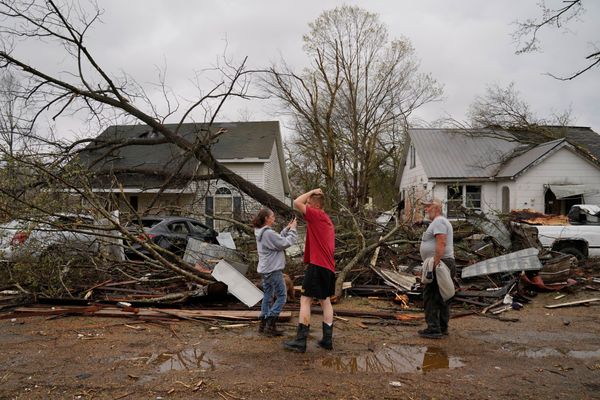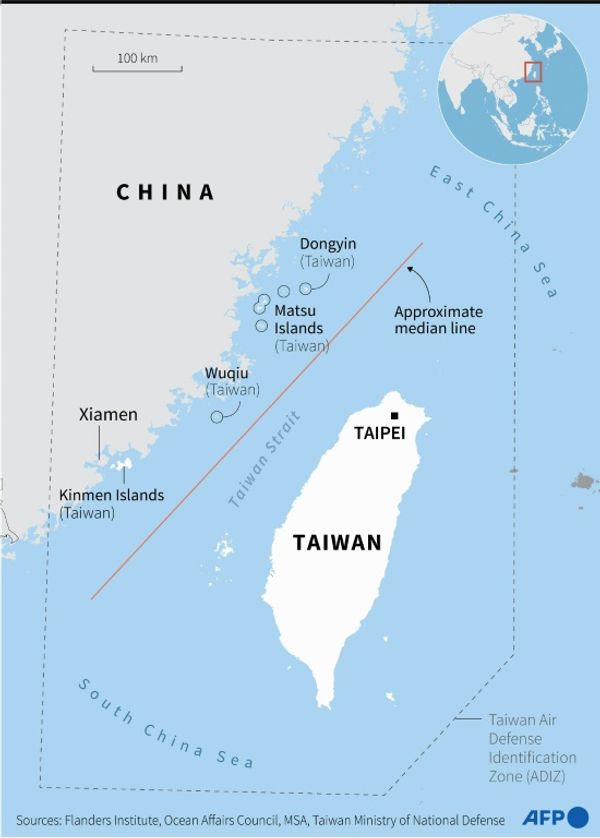
For nearly a decade, Canada’s prime minister, Justin Trudeau, has repeated a simple message: pollution “should not be free”. His government imposed a national carbon tax and emerged victorious at the country’s top court after a handful of provinces challenged the constitutionality of the law.
But in recent weeks, Trudeau undid years of careful messaging after he announced a temporary pause on the carbon levy for home heating oil.
The decision has led to widespread criticism from provincial premiers who argue more exemptions are needed – and growing concern by economists and political analysts that the decision could eventually destroy the centrepiece of his government’s efforts to fight the climate crisis.
Last month, Trudeau and a group of Liberals representing Atlantic Canada announced a three-year pause on the carbon price for home heating oil as a way of easing costs on lower-income Canadians. While the exemption is nationwide, the vast majority of heating oil is used in the Atlantic region by lower-income residents.
He framed the exemption as a temporary relief to rising costs – and announced a series of plans to get residents off heating oil. But the decision has unexpectedly exposed the persistent challenges of carbon pricing for the government.
Attempting to capitalize on the issue, federal Conservatives on Monday introduced a motion that would extend the home heating oil pause to all forms of home heating. The leftwing New Democratic party said it supported the motion, arguing the Liberal policy to remove the carbon price on oil heating is unfair to Canadians who live outside of the Atlantic region.
“One of the big problems of a carbon tax is that people don’t really understand how it works and aren’t terribly convinced that this is going to make a big difference for the climate,” said Lori Turnbull, director of the school of public administration at Dalhousie University. With a nationwide affordability crisis and sagging poll numbers weighing on the incumbent Liberals, a decision to exempt a dirtier form of heating fuel has sent a confusing message to voters. “The narrative around it all just keeps getting worse and worse for the government.”
Trudeau has since resisted any further carve-outs to the federal carbon price and defended the broader aim of the nationwide levy system, which he announced in 2019. Instead of adding more exemptions, Trudeau said his government will work with the provinces to further subsidize heat pumps for low-income residents, similar to what was announced in Atlantic Canada.

“The challenge for the government on this is that for years, they’ve been virtuous and so value-driven. They often suggest there’s no compromise. And so in this case, they’ve backed themselves into a corner,” said Turnbull. “Because it’s made people in other parts of the country – who don’t use heating oil but are still feeling the affordability crisis – even more angry.”
Andrew McDougall, a professor of political science at the University of Toronto, said the decision “really undercuts” all of the arguments Trudeau has previously made about the revenue-neutral carbon tax, namely that climate is a serious issue in the country and he’s the only one ready to address it.
“It makes him look like he either doesn’t actually care about fighting climate change and about a carbon tax, that it’s just a political move,” said McDougall.
Recent polling suggests the Liberals have lost support nationally and while an election isn’t likely until 2025, Trudeau’s party faces a steep climb in its path to re-election.
“By coming out and saying that he understands the carbon tax is creating hardships for people, he’s essentially reinforced the narrative of his opponents,” said McDougall. “It’s undone his messaging that the tax is not going to be something that’s going to leave you worse off. These last few weeks have been a gift to his political opponents.”
The persistent controversy has buoyed political support for Conservative leader Pierre Poilievre, who now holds a significant polling lead over the prime minister. The new Conservative leader hasn’t yet put out his own climate policy, but has so far run on a campaign to scrap the Liberal carbon tax.
Experts say the Liberals’ seemingly minor amendment to the carbon tax could weaken – or even kill – the government’s signature climate legislation.
“The framing of this move was to provide support to households who have affordability challenges, which is the number one issue in Canada and many other countries right now,” said Trevor Tombe, an economist at the University of Calgary.
“But only three days prior, the government’s main point was that the carbon pricing system doesn’t add to affordability challenges, because the rebates for most households are larger than the carbon tax payments themselves. And that’s true.”
Tombe says he was “completely shocked and stunned” by the way the government undercut a message they’d worked hard to finesse.
“By showing that they’re open to exemptions, it’s dramatically increased the pressure to expand the scale and scope of exemptions within the carbon pricing system,” said Tombe. “If heating oil creates an affordability challenge, then absolutely natural gas does as well. And for commuters, so too does gasoline.”
One of the key benefits of the levy was that it sought to change behaviour through a predictable, escalating price on carbon.
“But if now you have far less confidence that the carbon tax will actually be in the future, you’ve really weakened the incentive to make those decisions today. Heating oil is a small exemption, but we can also see the effectiveness of the entire carbon pricing system under pressure because it’s changing the way people think about it.”







